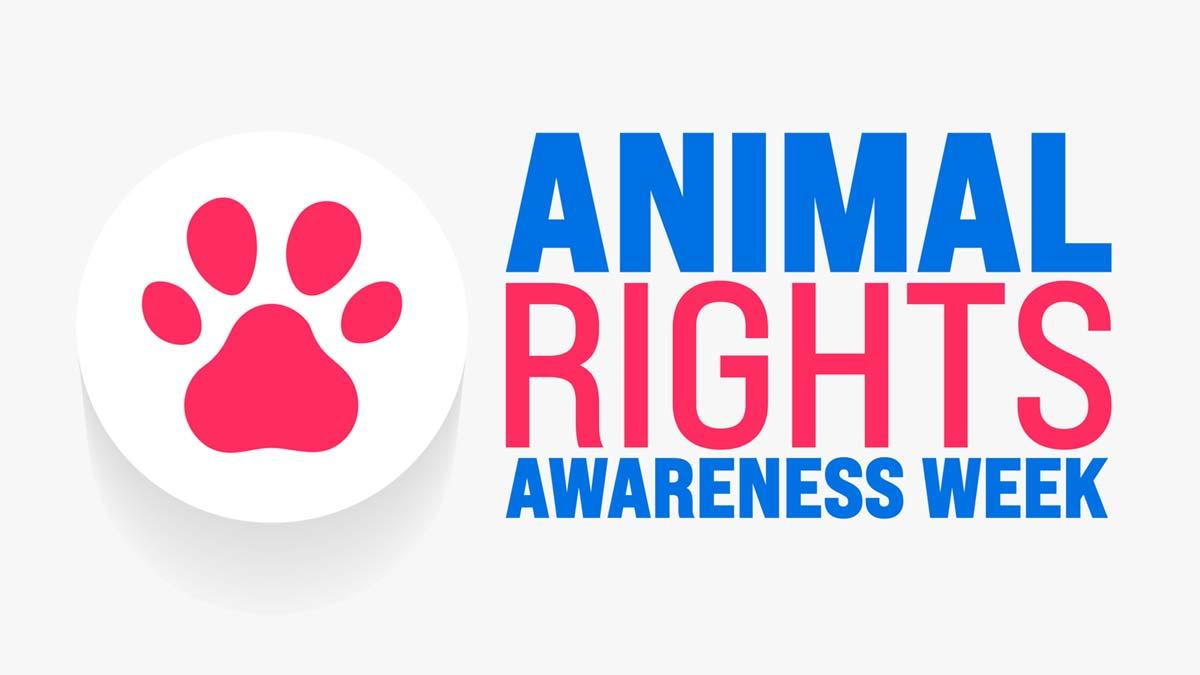
Every year, during the third week of June, animal lovers and advocates come together to celebrate Animal Rights Awareness Week. This special week is dedicated to raising public awareness about the humane treatment of animals and the rights they deserve as living beings. It’s a time to reflect on how we can better support animal rights and take actionable steps to prevent animal abuse and cruelty.
Animal Rights Awareness Week was established by In Defense of Animals, an organization dedicated to the welfare of animals. The week is filled with awareness events, educational campaigns, and activities designed to highlight the importance of treating animals with respect and compassion. From farm animals to exotic pets, every creature has the right to humane treatment and protection.
This week is not just for activists or animal welfare groups; it's for everyone. By participating in Animal Rights Awareness Week, you can make a difference in the lives of animals. Whether it's adopting from a local animal shelter, buying cruelty-free products, or supporting conservation efforts, there are many ways to get involved and support the rights of animals.
What is Animal Rights Awareness Week?
The concept of animal rights stems from the belief that animals are sentient beings capable of experiencing pain, joy, and suffering. The first outright mention of animal rights can be traced back to the early animal rights movement, which sought to recognize the inherent value of animals and protect them from harm. This movement led to significant milestones, such as the first animal cruelty legislation and the establishment of the Animal Welfare Act.
During Animal Rights Awareness Week, people and organizations host a variety of events to educate others about the rights of animals. These events often include workshops, lectures, and social media campaigns aimed at increasing awareness of animal rights issues and encouraging the humane treatment of animals.
The 5 Rights of Animals
Understanding the key themes of this vital week starts with recognizing the five fundamental rights of animals. These rights form the foundation of the animal rights movement and guide our interactions with animals:
The Right to Freedom from Hunger and Thirst: Animals should have access to fresh water and a nutritious diet that maintains their health and vitality.
The Right to Freedom from Discomfort: Animals should live in an appropriate environment, including shelter and a comfortable resting area.
The Right to Freedom from Pain, Injury, and Disease: Animals should receive proper veterinary care and preventive measures to ensure their well-being.
If your pet needs surgery, such as Tibial Plateau Leveling Osteotomy, more commonly known as TPLO surgery, then contact veterinary orthopedic surgeons to make sure your pet isn’t suffering in pain.
The Right to Freedom to Express Normal Behavior: Animals should have enough space, proper facilities, and the company of their kind to exhibit natural behaviors.
The Right to Freedom from Fear and Distress: Animals should live in conditions and be treated in a manner that avoids mental suffering.
These rights highlight the importance of treating animals as sentient beings with their own needs and wants. Ensuring these rights are met is essential for the welfare of any animal, whether they are pets, farm animals, or exotic species.
How to Participate in Animal Rights Awareness Week
There are many ways to participate in Animal Rights Awareness Week and support animal rights. Here are some practical steps you can take:
Consider Going Vegan
One of the most impactful ways to support animal rights is by adopting a vegan diet. Vegan means choosing foods that do not involve animal exploitation or cruelty. By consuming vegan food samples and incorporating more plant-based meals into your diet, you can help reduce the demand for animal products and support the welfare of animals.
Pledge to Buy Cruelty-Free
Many beauty products and household items are tested on animals. By pledging to buy cruelty-free products, you can support companies that do not commission animal testing. Look for the cruelty-free badge on products, which indicates they have not been tested on animals. This small change can significantly impact the lives of laboratory animals.
Donate to an Animal Shelter
Local animal shelters play a crucial role in rescuing and caring for abused or abandoned animals. Donating money, supplies, or your time to a local animal shelter is a great way to support the welfare of animals. Shelters often need resources to provide food, medical care, and comfort to the animals in their care.
Become an Animal Rights Defender by Taking Action
Supporting animal rights goes beyond awareness; it involves taking concrete actions to make a difference. Here are some ways to become an animal rights defender:
- Adopt Shelter Pets: Instead of buying from pet stores or breeders, adopt your next pet from a shelter. This helps reduce the number of animals in shelters and supports the concept of giving a second chance to animals in need.
- Report Animal Cruelty: If you witness or suspect animal abuse, report it to the authorities or a local animal welfare group. Your action can save an animal from suffering and bring attention to the issue.
- Support Conservation Efforts: Contributing to conservation programs helps protect wildlife and their habitats. This is especially important for endangered species and exotic pets.
Research Who You're Donating To
When donating to animal rights organizations, it's essential to research where your money is going. Ensure that the organization aligns with your values and effectively uses donations to support animal rights. Look for transparency in their financial reports and the impact of their work.
Supporting reputable organizations can make a significant difference in the well-being of animals. Whether it's a large national group or a small local shelter, your contributions can help provide essential services and support the humane treatment of animals.
How to Make People Aware of Animal Cruelty
Raising awareness about animal cruelty is crucial in the fight for animal rights. Here are some effective ways to make people aware:
- Use Social Media: Share information, stories, and videos about animal rights issues on your social media platforms. Engage with others and encourage them to spread the message.
- Host Awareness Events: Organize or participate in events such as workshops, lectures, or film screenings to educate your community about animal cruelty.
- Advocate for Legislation: Support laws and policies that protect animals from cruelty and abuse. Contact your local representatives and urge them to take action.
Which Animals Are Protected by Law?
Various animals are protected by law, ensuring their humane treatment and welfare. These include:
- Pets: Laws protect pets from abuse, neglect, and abandonment. The Animal Welfare Act outlines standards for their care.
- Farm Animals: Regulations exist to ensure the humane treatment of farm animals, though more work is needed to address intensive farming practices.
- Laboratory Animals: Laws govern the use of animals in research, aiming to minimize their suffering and promote alternative methods.
- Wildlife: Conservation laws protect endangered species and their habitats, preventing exploitation and ensuring their survival.
Animal Rights Awareness Week is a powerful reminder of our responsibility to treat animals with respect and compassion. By participating in awareness events, adopting cruelty-free practices, and supporting shelters and conservation efforts, we can help ensure the well-being of animals everywhere.
Make An Impact On Animal Lives
Join us at Laveen Veterinary Center in honoring this important week and making a positive impact on the lives of animals. Together, we can create a world where all living beings are treated with kindness and dignity.



